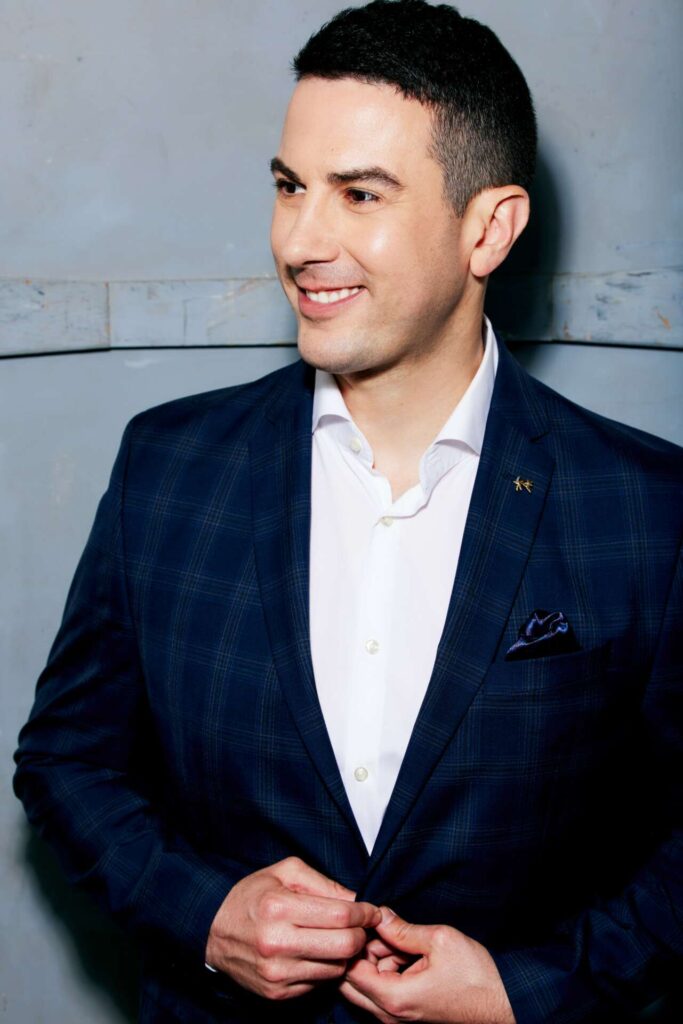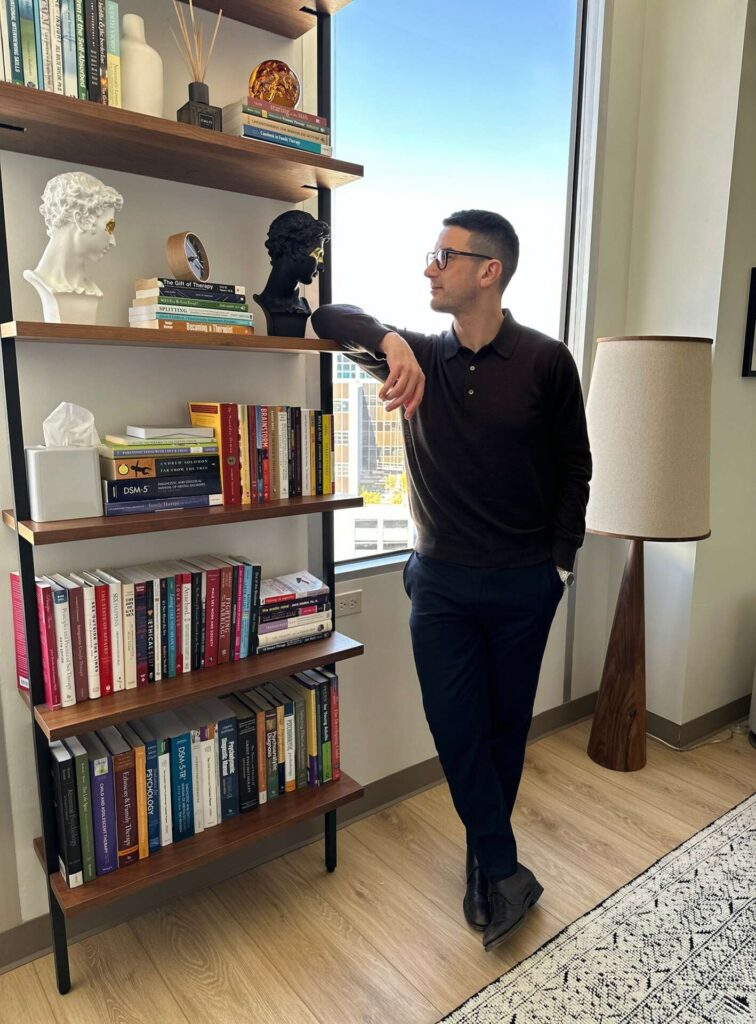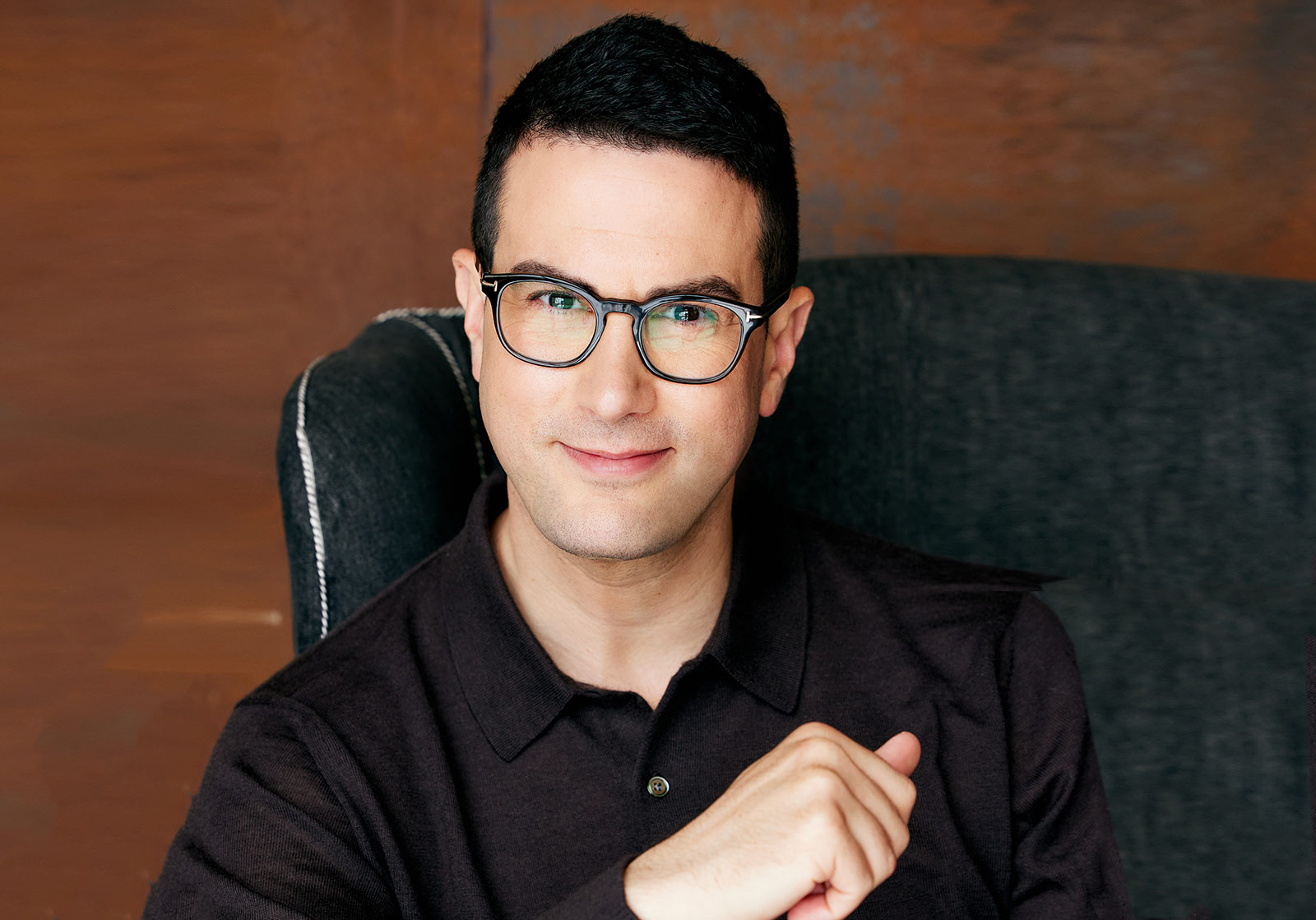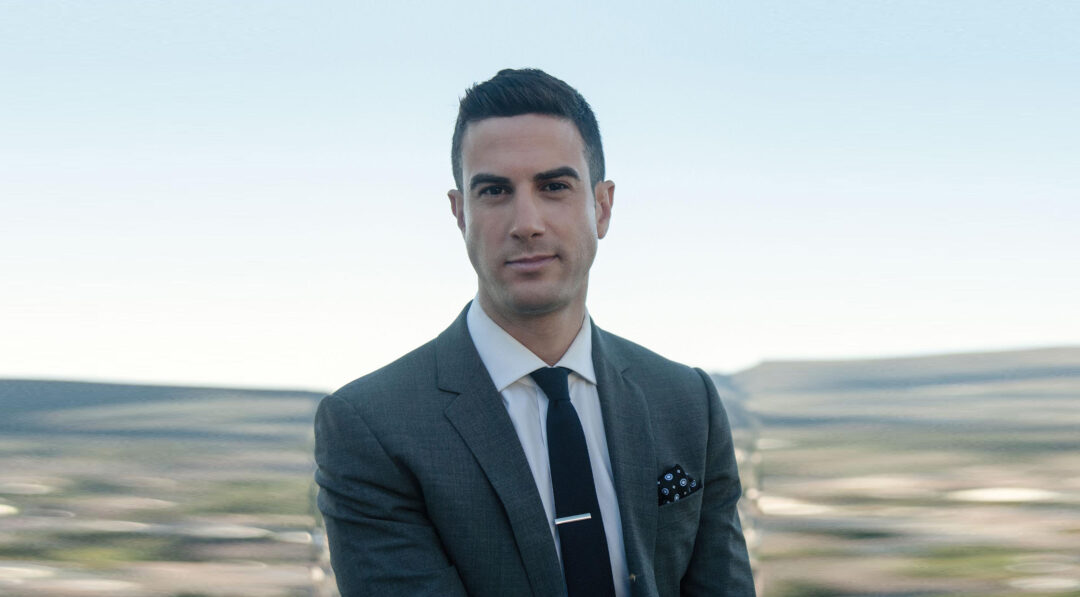We were lucky to catch up with Leor Ram recently and have shared our conversation below.
Leor, looking forward to hearing all of your stories today. We’d love to hear about the best advice you’ve ever given to a client? (Please note this response is for education/entertainment purposes only and shouldn’t be construed as advice for the reader)
Truth be told, I don’t tend to offer advice often as a psychotherapist. I find that this actually impedes the therapeutic process and denies my clients the trust, ability, and agency to form their own answers. As I sometimes tell my clients, I’m more of a “questions guy” than I am an “answers guy” in order to arrive at progress collaboratively. So rather than tell you about the best advice I’ve given to a client, I’d rather focus on one of the best pieces of advice I received from one of my former clients.
I believe that as a psychotherapist, I am continuously learning from my clients, and there have been many instances where their insights have deeply resonated with me. One particular moment stands out in my mind, as it not only impacted my professional approach but also had a profound effect on my therapeutic approach and understanding of human change.
Early on in my work, many years ago, I was working with a client who was struggling with making significant life changes. I gently probed their resistance to taking necessary steps towards personal growth. The client paused thoughtfully, looked at me, and said, “You know, it’s funny how I often resist change when I have the luxury of staying in my comfort zones. It’s only when I feel like I have no other choice that I find the courage to transform.”
Those words struck a deep chord within me. In my work, I had witnessed clients grappling with change, hesitant to step outside their familiar patterns. But this client’s insight brought to light a fundamental truth: human beings often resist change when they perceive their current situation as bearable, even if not ideal. It’s only when circumstances become unbearable or when there’s a sense of urgency that we are compelled to take action and embrace transformation.
This realization significantly influenced my therapeutic approach. I started understanding that genuine change often requires creating a sense of necessity in the client’s mind – helping them recognize the potential consequences of remaining stagnant and empowering them to see the possibilities that lie ahead. As a result, I began tailoring my interventions to facilitate a shift in perception, allowing clients to envision a more compelling future and motivate themselves to take the necessary steps toward positive change.
Moreover, this client’s wisdom resonated beyond the therapy room, influencing my perception of my own life and decisions. I became more aware of how my comfort zone might hinder personal growth, and I embraced the idea of seeking change as a catalyst for progress and self-discovery.
Leor, before we move on to more of these sorts of questions, can you take some time to bring our readers up to speed on you and what you do?
My journey with psychotherapy began with my own therapeutic work during a tough time in my life. I was searching for more purpose in my day-to-day, and my therapist at the time recommended I seek out some volunteer work. I joined a crisis and suicide prevention hotline for an LGBTQ youth organization, The Trevor Project, and found my training and time there to be incredibly rewarding. I loved the people I got to work with, the type of work we got to do, and particularly how assisting young people who were reaching out for help made me feel. In fact, during that time, I would end up talking to the callers about so many aspects of their lives, in order to find additional resources and ways to help them, that my supervisor would have to remind me that I was “not the caller’s therapist” and that I needed to move on to the next caller in crisis since the current crisis was resolved. After hearing that a few times, as well as thinking about all the benefits I was experiencing from my own therapy, I decided to go back to graduate school and begin my own career shift to becoming a therapist.
Since then, I have become a Licensed Marriage and Family Therapist, a Licensed Professional Clinical Counselor, a National Certified Counselor, and a Certified Group Psychotherapist working with individuals, couples, families, groups, and businesses. I’ve also had the pleasure of being a clinical member of the American Association of Sexuality Educators, Counselors and Therapists (AASECT), the Society for Sex Therapy and Research (SSTAR), and the Society for Scientific Study of Sexuality (SSSS), where I have been honored to present my research on contemporary difficulties and trends within the LGBTQ+ community. In 2020, I created my own group practice, Integrative Psychotherapy Group.
With Integrative Psychotherapy Group, I am proud to provide insightful therapy to work through our clients’ concerns and guide meaningful change. I believe that therapy helps provide a sense of relief and self-awareness for those who feel overwhelmed or are having trouble finding the root of their problems. In my work as a psychotherapist, I specialize in LGBTQ+ affirmative therapy. I find my work with this community to be exceptionally rewarding in that I get to participate in collaboratively exploring a person’s most intimate aspects of their ever-evolving identity. After training and working for years with a certified sex diplomate of the American Association of Sexuality Educators, Counselors and Therapists (AASECT), I am also honored to get to work with many individuals on improving concerns regarding their sexuality and sexual difficulties. In combination with the consulting arm of my practice, these additional specialties are areas where I find the work to be engaging, exceptional, and remarkably enjoyable.
I also offer services as a media consultant and work with business executives and teams to provide coaching and workshops for specific challenges through our consulting arm, Integrative Consulting Group. Integrative Consulting Group’s executive coaching benefits an organization’s top decision-makers to move from thinking into doing in ways that help them see better results. Ultimately, I work to assist organizations to avoid becoming stagnant. Companies face difficulties associated with transitions, including management changes, mergers, the adoption of new technologies, regulatory changes, the loss of employees, and fluctuations in demand for their products or services. I help these companies to maximize success for the organization as a whole as well as for the individuals that keep the company thriving.


Other than training/knowledge, what do you think is most helpful for succeeding in your field?
I believe that in addition to training and knowledge, there are several crucial factors that contribute to succeeding in the field of psychotherapy.
1. Empathy and Compassion: One of the most essential qualities for a psychotherapist is the ability to empathize with clients and demonstrate genuine compassion. The therapeutic relationship is built on trust, and clients need to feel understood and accepted. Empathy allows us to connect with our clients on a deeper level, fostering a safe and supportive environment where they can explore their thoughts, emotions, and experiences. Despite all the training and education we receive along the way, they don’t give us a “heart” in therapy school; that has to be a part of our character already.
2. Active Listening and Presence: Being an active and attentive listener is fundamental in psychotherapy. Clients often need to express themselves, and it’s essential to be fully present during sessions, without judgment or distraction. Active listening enables me to pick up on subtle cues, understand underlying issues, and guide the therapeutic process effectively.
3. Flexibility and Adaptability: Each client is unique, and what works for one individual may not necessarily work for another. Flexibility in therapeutic approaches allows me to tailor treatment plans according to the client’s specific needs and preferences. Being adaptable and open to trying different techniques enhances the likelihood of achieving positive outcomes.
4. Self-Reflection and Continuing Education: Personal growth and self-awareness are vital for psychotherapists. Engaging in ongoing self-reflection allows me to identify and address any biases or blind spots that might influence my therapeutic work. Additionally, investing in continuous education and staying up-to-date with the latest developments in the field helps me provide the best possible care for my clients.
5. Resilience and Emotional Regulation: The nature of psychotherapy can be emotionally demanding, as we deal with clients’ challenges and traumas. Maintaining emotional resilience and regulating our own emotions are crucial for staying grounded and providing consistent support to clients. This includes seeking consultation and support when needed in order to prevent burnout.
6. Boundaries and Ethics: Establishing clear boundaries and adhering to ethical guidelines are essential for maintaining a professional and healthy therapeutic relationship. Respecting client confidentiality, setting appropriate limits, and recognizing the scope of our practice ensure that clients receive the best care possible.
7. Collaboration and Networking: Collaboration with other healthcare professionals and networking within the mental health community can be invaluable. By working together with colleagues and specialists, we can gain new perspectives, share knowledge, and provide comprehensive care for clients with complex needs.
8. Patience and Persistence: Psychotherapy is a process, and progress may not always be linear. Patience and persistence are essential virtues in guiding clients through difficult times and celebrating their achievements, no matter how small they may seem.
I really believe that success in the field of psychotherapy goes beyond academic knowledge and training. The aforementioned elements are key attributes that enable me to make a meaningful impact in my clients’ lives and create a positive therapeutic environment.


How do you keep your team’s morale high?
In owning Integrative Psychotherapy Group, I find that managing a team and maintaining high morale are essential components for the success and growth of the practice. There are many valuable considerations that have proven effective in my experience.
First and foremost, establish a clear vision and mission for the group practice, and communicate it effectively to your team. When everyone understands the common goals and values, it creates a sense of purpose and direction, fostering a unified and motivated team.
Encourage open and transparent communication among team members. Regular team meetings and one-on-one check-ins provide opportunities to address concerns, share feedback, and ensure that everyone feels heard and valued. Being receptive to feedback and acting on it reinforces a culture of trust and respect.

Foster a work environment that empowers team members and allows for autonomy in decision-making. Providing opportunities for growth and development, and allowing team members to take ownership of their roles, instills a sense of pride and ownership in their work.
Acknowledge and celebrate individual and team achievements. Recognizing their efforts, whether big or small, boosts morale and reinforces the importance of their contributions to the group practice’s success.
Strive to create a supportive work environment that promotes work-life balance. Encourage self-care and provide resources for managing stress and burnout. A healthy and balanced team is more likely to be engaged and productive.
Organize team-building activities and social events outside of work to foster camaraderie and strengthen team bonds. These activities help build positive relationships among team members and improve overall collaboration and communication.
Invest in your team’s professional development by offering training workshops, seminars, or continuing education opportunities. Supporting their growth not only benefits their individual careers but also enhances the quality of services provided by the group practice.
Address conflicts or issues within the team promptly and constructively. Create a safe space for team members to express concerns and work together to find resolutions. Attending to conflicts early helps prevent negativity from spreading and maintains a harmonious work environment.
Embrace diversity and inclusivity within the team. Encourage open discussions about cultural differences and promote an inclusive environment where everyone feels respected and valued.
Finally, as a leader, lead by example and demonstrate the qualities and values you want to see in your team. Be approachable, supportive, and show a genuine interest in the well-being of your team members.
By implementing these strategies, you can create a positive and empowering work culture, resulting in a motivated and cohesive team. A high-morale team is more likely to be dedicated to their work, provide exceptional client care, and contribute to the long-term success of the group practice.



